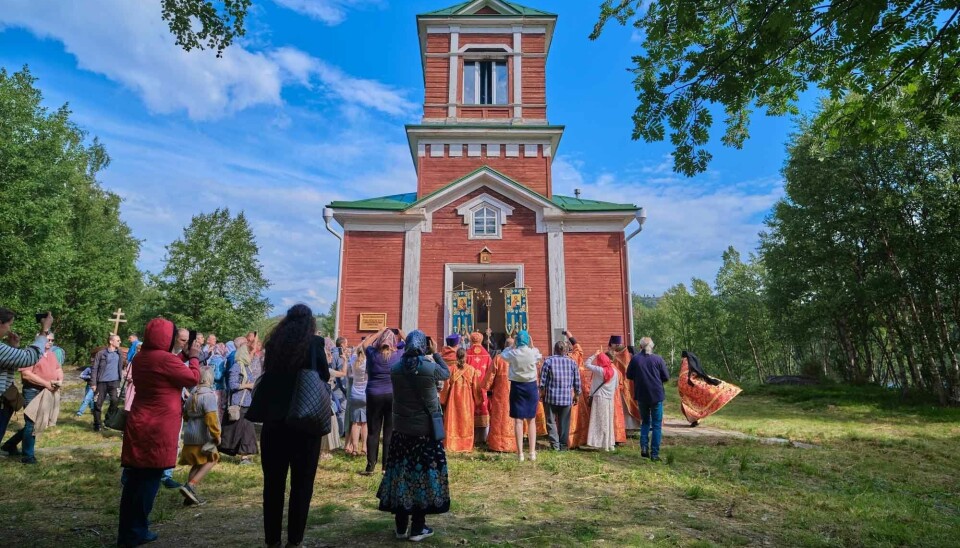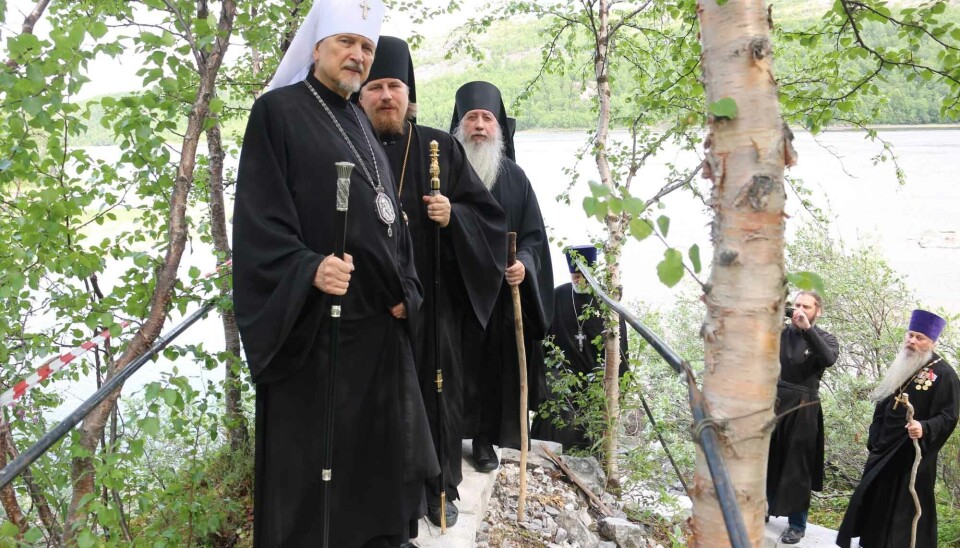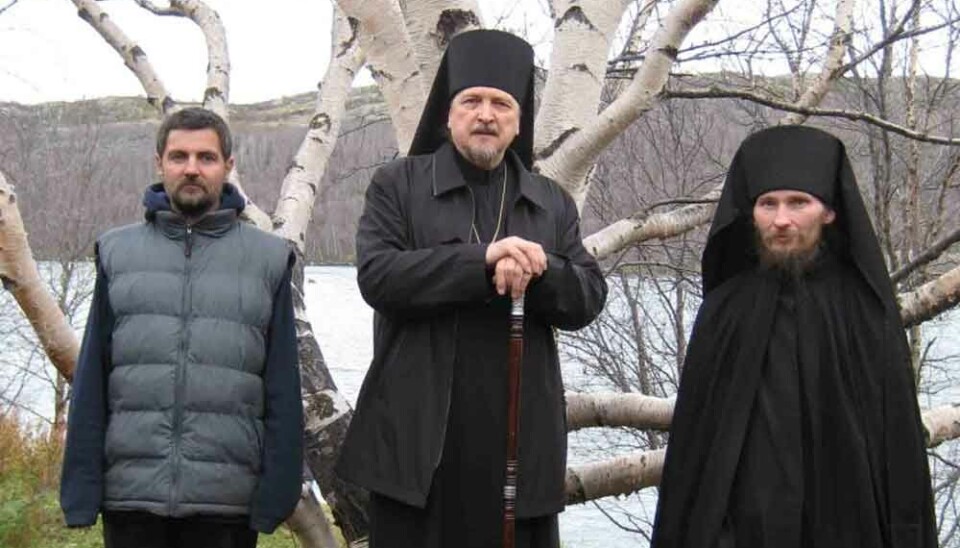
"This place is gaining strength," says Orthodox leader Mitrofan as he visits Church of Boris and Gleb
During his visit to the church that is located only few hundred meters from the border to Norway, the ultraconservative clergyman praised local monks and honoured a churchgoer and soldier that is reported missing in the war against Ukraine.
"Our souls seek this place. We feel its special force, its special divine force," Mitrofan said in a speech delivered at the Church of Boris and Gleb.
"It is important that we are here, on this very forward position of the border of our country," he emphasised and added that the border is also "a spiritual border that stands against the Evil that is rolling over us."
Metropolitan Mitrofan is the highest-ranked churchman on the Kola Peninsula. He annually pays a visit to the сhurch which is located on a small pocket of Russian land on the western side of the Pasvik river.

The prelate is known for his rigid anti-western positions and his hardline support of the war against Ukraine.
In his address, he honoured a man he referred to as 'Mikhail the smith,' a churchgoer and soldier that had made the church chandeliers.
"They are masterpieces, it is amazing how he did it," Mitrofan said and looked up towards the church ceiling. "And then he went away and disappeared outside Kursk and nobody knows where he is, nobody has found him. And everybody, his wife and family is mourning."
Mitrofan also praised Dosifey, the monk that lives and serves at the Boris and Gleb Church. Dosifey strongly contributes to the revival of the site, the metropolitian emphasised.
The monk has reportedly served at the border church ever since it gained the status of a monastery. He is described as a very skilled craftsman.

"His talents are boundless; he is a master craftsman in everything he does. If something needs to be built, repaired, or fixed, he will do it. And when it comes to growing crops and fishing, he has no equal," a social media post from the church reads.
The Boris and Gleb Church was built in 1874 and stands on the site of a chapel originally built by the Russian Orthodox monk and missionary Trifon in the 16th Century. It is the only piece of Russian land situated on the western bank of the Pasvik River.
When the border between Tsarist Russia and the union state of Sweden-Norway was delineated in 1825, the Russian negotiators demanded that the Boris and Gleb Church and surrounding land should belong to Russia. In return Norway got a far bigger territory on the eastern side of the river.
The Borisoglebsk area is part of the Russian border zone and only people with special permission are allowed to visit the church. Since 2014, the church has been part of the nearby Trifon Pechenga Monastery.

















